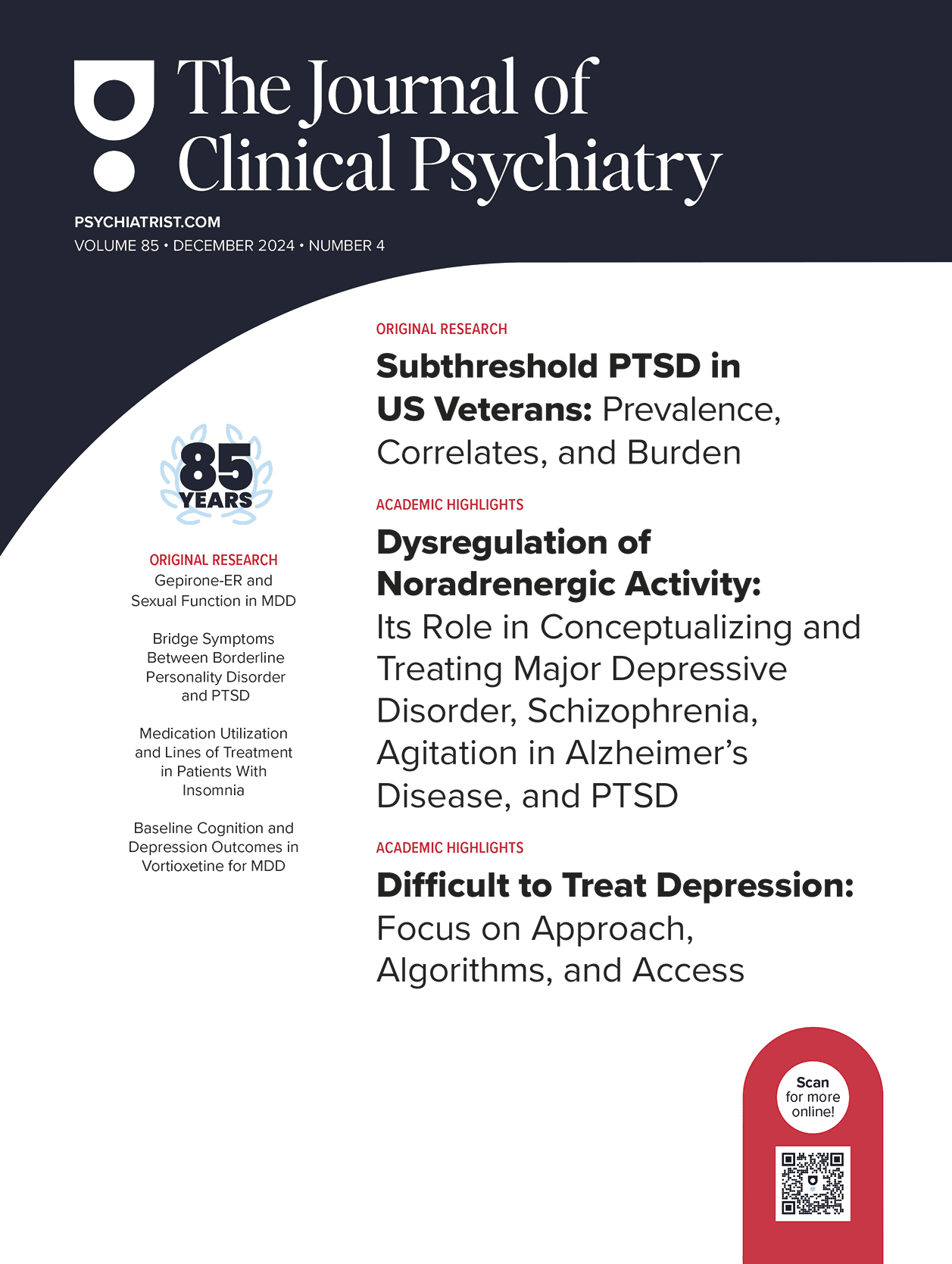Objective: Bipolar disorder is associated with impairments in emotion processing that are present during both mood episodes and periods of remission. In this context, most previous studies have investigated facial emotion recognition abilities. In contrast, the current study focused on the perception of prosodic and semantic affect.
Method: The present study directly contrasted the perception of prosodic and semantic affect in 58 remitted patients meeting DSM-IV criteria for bipolar I disorder and 45 healthy volunteers by using 2 subtests of the Comprehensive Affective Testing System (CATS) and investigated the relationship of prosodic and semantic affect perception with patients’ outcomes. Participants were investigated from June 2011 until May 2013.
Results: Patients and controls did not differ regarding the recognition of the vocal emotion while ignoring the affective meaning of test trials (CATS 1), but patients significantly more often misinterpreted sad as happy prosody (P = .039). In addition, patients were impaired in recognizing the affective meaning of test trials while ignoring the vocal emotion (CATS 2; P = .052). Again, they significantly more often misinterpreted a sad affective meaning as a happy one (P = .025). However, the findings on misinterpretations did not withstand Bonferroni correction for multiple testing. CATS 1 test performance was negatively correlated with depression scores, whereas a positive association was found between performance on both tests and patients’ functioning. Patients indicated a significantly lower quality of life (P < .001); however, multiple mediation analysis revealed that this finding was not mediated by differences in prosodic and/or semantic affect perception between the 2 groups.
Conclusions: Even during periods of remission, patients with bipolar disorder may be impaired in semantic but not prosodic affect perception. Notably, they may frequently misinterpret sadly expressed emotions as happy ones. Our findings underscore the relevance of these deficits in the psychosocial context.
Continue Reading...
Did you know members enjoy unlimited free PDF downloads as part of their subscription? Subscribe today for instant access to this article and our entire library in your preferred format. Alternatively, you can purchase the PDF of this article individually.
Please sign in or purchase this PDF for $40.00.
Save
Cite
Already a member? Login




